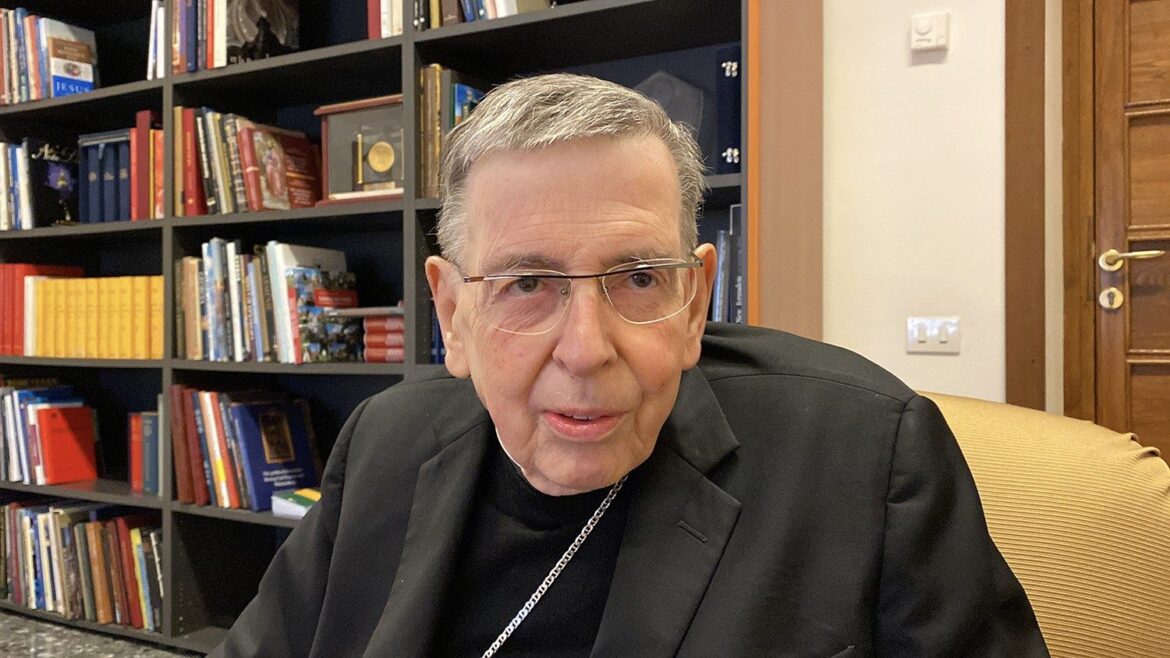As the Christian community in Türkiye awaits Pope Leo XIV to commemorate the Council of Nicaea with the Ecumenical Patriarch of Constantinople, Cardinal Kurt Koch, Prefect of the Dicastery for Christian Unity, says he hopes that this joint commemoration will bear witness to Christian unity.
By Christine Seuss
Q: The First Council of Nicaea took place 1,700 years ago. Why is it still relevant today?
Cardinal Koch: I believe there are two reasons for this. Firstly, the Council took place in 325, at a time when Christianity had not yet been wounded by so many divisions and separations.
That is why the Council concerns all Christians and can be celebrated in ecumenical fellowship. And second, the Council defined and established the Christian faith in Jesus Christ as the Son of God, which is held by all Christians.
Reminding ourselves of this anew and deepening our faith together in ecumenical friendship is the great advantage of this event.
Christ’s divinity remains relevant in ecumenism
Q: At that time, there were disputes over the divine nature of Christ. What are the big questions in ecumenism today?
That question remains, of course, because I believe that, despite all our diplomacy, we can only find unity in faith. We find unity in that apostolic faith which is handed down and entrusted to every new member of the body of Christ in baptism.
And, of course, the Council of Nicaea is a great foundation on which faith has been established. And it can be deepened anew – because faith in the divinity of Jesus is not simply a given, but is still questioned today. And deepening it anew seems to me to be very important.
Q: Many invitations have been issued for this great anniversary, both from the Catholic and Orthodox sides. The aim was to enable as broad a participation as possible. Can you already tell us who we can expect to see there and who may not have been able to confirm their attendance?
We don’t yet know exactly who will ultimately come and who will not … Therefore, I don’t want to say anything in this regard, so as not to spread false reports.
The aim was to have as many Christians as possible in attendance. That was also Pope Leo’s wish, and I would like to emphasise that. We can discuss afterwards who was there and who was unable to come.
In Illo uno unum: the Pope’s motto
Q: What message would you like to see emerge from this commemoration of the Council?
A testimony that we are one at the core of the Christian faith. This also corresponds to Pope Leo XIV’s wonderful motto, In Illo uno unum.
This means that we are many, we are diverse, but we are one in Jesus Christ. This motto, which he chose for the Catholic Church, applies equally to ecumenism.
Q: You yourself can look back on a long career in the Vatican and in ecumenism. How do you personally feel about participating in this important anniversary?
First of all, I am very pleased to see how this event, 1,700 years after the Council of Nicaea, is moving the whole of Christendom.
There have been so many conferences, so many meetings on this subject … I am very pleased about this and I am very grateful that Christendom is reflecting on this council and renewing its common faith.
A visit of “sympathy and solidarity”
Q: After Türkiye, you will also be visiting Lebanon. What fruits do you hope to see from this first apostolic journey of the Pope?
Of course, it is also a visit of sympathy and solidarity with the difficult situations in these countries, in Türkiye as well as, especially, in Lebanon. It is an encouragement for Christians – in Türkiye, Christians are a small minority.
In Lebanon, there is a diverse community of Christians, with a strong Maronite presence, of course, who are living in a difficult situation, both politically and economically.
Strengthening and encouraging them is certainly a concern of the Holy Father. And, of course, ecumenical dialogue and interreligious dialogue, the dialogue between Christians and Muslims, which is particularly important in Lebanon because the president there is Maronite and the prime minister is Muslim.
The above is an English translation of an interview originally conducted in German.


